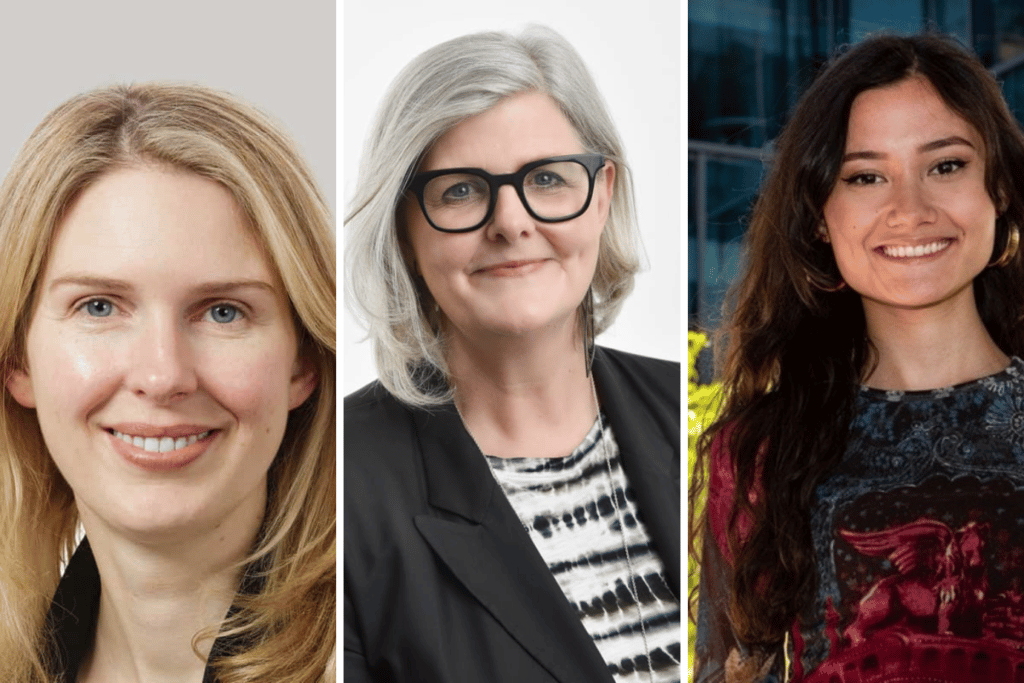With the Jobs and Skill Summit done and dusted, it’s worth reflecting on what it achieved when it comes to gender equality.
To start, there has been a few notes about the stark difference between the last time an Australian government hosted a jobs summit. It was the Hawke government back in 1983, and among 97 delegates, there was just one woman present. That was Susan Ryan, the pioneering Labor senator and minister.
The power of women collaborating
Last week, more than half of the delegates at Albanese’s summit were women, with a handful of powerful women holding key roles in leading discussion, including Danielle Wood, Jennifer Westacott, Sally McManus, Michele O’Neil, Kate Jenkins, June Oscar, Yasmin Poole and Sam Mostyn.
These women (among many others) set a powerful agenda, ensuring gender equality was centred in panels and conversations at the Summit.
Lots of discussion centred around ways to improve women’s workforce participation, the importance of supporting and investing in the care sector, and how workplaces can become better and safer for everyone.
Sam Mostyn was named by Minister for Women Katy Gallagher as the Chair of the government’s Women’s Economic Equality Taskforce, which will help develop a National Strategy to Achieve Gender Equality.
Paid parental leave
Business, unions and advocacy groups joined forces at the summit to push the government to consider a new policy on paid parental leave. Calls were made to expand the current program to include 26 weeks of paid parental leave, with an emphasis on making it easier for both parents to share the leave and a “use it or lose it” mechanism for fathers.
The government has expressed some hesitancy around introducing a new paid parental leave policy, citing the deficit, but it’s so significant to see so many different groups come together to call for it in a united and powerful way.
One of the confirmed outcomes of the summit is an update to the Fair Work Act, which will include stronger access to flexible working arrangements and unpaid parental leave.
Danielle Wood’s speech
CEO of the Grattan Institute Danielle Wood delivered the opening address at the Summit, speaking about the gender-segregation in the workforce, and the concentration of women in lower paid work.
In one the most memorable lines delivered at the Summit, Wood spoke about the massive opportunity Australia has when it comes to the untapped potential of women’s workforce participation.
“I can’t help but reflect that if untapped women’s workforce participation was a massive ore deposit, we would have governments lining up to give tax concessions to get it out of the ground,” she said.
Early childhood education and care
There was plenty of discussion about the government’s proposed changes to subsidies for early childhood education and care due in July 2023, and the possibility of these changes being brought forward. Business, unions and advocacy groups are once again in line when it comes to calls for improved access to early childhood education and care. State premiers, including Victorian Premier Daniel Andrews, made the case for the prioritisaton of reform in this space. “[It’s] perhaps the biggest lever that we can pull, the biggest contribution that we can make to economic prosperity,” he said.
While the government has mostly shot down suggestions the subsidy changes could be brought forward, it did acknowledge there was a need for a long-term approach to improve early learning and care, and better support the workforce participation of parents.
In its outcomes document from the summit, the government said it will: “Develop through National Cabinet, a long-term vision for early childhood education and care reform to better support parents’ workforce participation as a national priority.”
“The Government will work with the sector, including philanthropic foundations, to create a whole of government approach to improve early childhood development and education.”
What was missing on gender equality?
Youth advocate Yasmin Poole, the youngest person to attend the summit, made the pertinent point at the Summit that the government must commit to gathering data on how different groups of women and gender diverse people are affected by policy decisions.
For example, she said data on the gender pay gap is severely lacking an intersectional lens, and we are without any data as to how women of colour, Indigenous women, culturally and linguistically diverse women, women with disabilities, LGBTIQ people are faring.
She also called for more young women to have a voice at the table as policy discussions are had.
Feature Image: Danielle Wood, Sam Mostyn, Yasmin Poole


